Insulating Concrete Walls: The Ultimate Guide
Concrete wall insulation - a term that may sound simple but carries a world of meaning in the realm of energy efficiency and home comfort. The question is, have you ever considered the significant role this unsung hero plays in maintaining a comfortable indoor environment?

In a world where energy conservation and sustainable living are becoming increasingly important, it's high time we shed light on the benefits and intricacies of insulating concrete walls.
In this comprehensive guide on concrete wall insulation, we will discuss everything there is to know about insulating concrete walls. We will uncover the mystery of how to determine the right amount of insulation, the benefits of concrete wall insulation, and maintenance practices to keep your insulation effective.
Understanding Concrete Walls
Concrete is a good building material and has been in use for decades. It is made by mixing different materials such as cement, sand, gravel, and water. Concrete is also a popular building material due to its strength, durability, and fire-resistant properties. As a result, concrete is used for both residential and commercial buildings.
When most people talk about concrete walls, they refer to masonry walls made with blocks. Concrete walls are of 2 different types; precast walls and poured-in concrete walls. Concrete walls are used for many purposes, such as basement walls, external walls, or load-bearing walls.
Why Insulate Concrete Walls?
One of the reasons for insulation is the reduction of heat transfer. An uninsulated space causes high energy consumption and an uncomfortable living environment. Concrete walls are porous and naturally provide low resistance to heat transfer. Therefore, insulating your concrete walls is an excellent way to reduce energy consumption and keep your home comfortable.
Concrete walls absorb moisture, making them the perfect environment for mold growth and mildew. Concrete wall insulation helps to reduce moisture buildup and maintain the structural integrity of your walls. This helps to improve the air quality in your building, which the musty smell from mold growth can cause.
Concrete wall insulation helps to keep your building soundproof and fire-resistant. There are insulating materials that provide soundproofing properties for your home, reducing the noise from the environment or between rooms. In addition, concrete wall insulation can reduce the havoc during a fire outbreak by reducing the spread to other parts of the building.
Types of Insulation for Concrete Walls
The insulating material used for concrete wall insulation will determine the amount of resistance to heat transfer. These insulating materials have different R-values, costs, moisture resistance, etc. The different types of insulation used for concrete walls include the following:

1. Spray Foam Insulation
Spray foam insulation is applied to your concrete walls as a liquid to create an airtight atmosphere. It expands to fill your concrete wall and blocks out holes, spaces, and crevices that cause building heat loss. Existing walls, basement walls, and unfinished walls can be covered with spray foam insulation.
Spray foam is the best insulation for concrete basements or other types of walls as it significantly reduces heat transfer. The insulation is divided into two different types and offers a very high R-value within the range of R2.2 - R7, depending on the type used. However, the drawback of using spray foam for your concrete wall insulation is that it is an expensive procedure.

2. Rigid Foam Insulation
Rigid foam insulation is a type of insulation where a solid foam board is applied to existing walls. The foam comes in various thicknesses, significantly reduces heat-transferred foam insulation, has good moisture resistance, and is easy to install.

3. Fiberglass Batt Insulation
Fiberglass batt insulation is one of the most widely used insulation, applied as batts or rolls to concrete walls. The main composition of fiberglass insulation is fine glass fibers; then, it is treated and processed into batts or rolls. The R-value of fiberglass of R2.3 to R3.5 which is lesser when compared to spray foam insulation
Fiberglass insulation provides excellent thermal insulation properties but absorbs moisture. This makes it susceptible to mold growth and unsuitable for areas prone to flooding. Nevertheless, it is cheap and easy to install.

4. Cellulose Insulation
Cellulose insulation is made from 85% of recycled paper and is blown into wall cavities to fill gaps and crevices. Cellulose insulation offers an R-value of R3 to R3.8 and can be an effective choice for insulating concrete walls. In addition, it is environmentally friendly and relatively affordable to install.
Factors to Consider Before Insulating Concrete Walls
Concrete wall insulation is important to save money on energy consumption and keep your home comfortable. Certain factors must be considered for properly installing concrete wall insulation. These factors include the following:
1. Moisture Control
Moisture reduces the effectiveness of any insinuating material. It can seep into the insulation, which causes mold on insulation, among other problems. Therefore, it is a problem that must be tackled before insulating your concrete walls.
2. Vapor Retarders
Vapor retarders help to control moisture from seeping through your building. Before you carry out concrete wall insulation, you may need to install vapor barriers to prevent condensation or other moisture-related problems. Vapor barriers will prevent water from seeping into your walls, especially in areas prone to flooding.
3. Air Sealing
Air leaks in a building cause high energy consumption due to heat loss. Sealing holes, gaps, and crevices in your concrete walls will optimize the effectiveness of your insulation by preventing air leakages. Caulks & Sealants, or spray foam insulation, are effective methods used in air-sealing concrete walls.
4. Thermal Bridging
Thermal bridging occurs when a part of a building, such as the concrete wall, loses heat comparing other areas. It is an important factor to consider as it reduces the effectiveness of an insulated concrete wall. Thermal bridging leads to high consumption. A good way to reduce the likelihood of thermal bridging is by properly insulating your entire wall without interruptions.
5. R-value
The R-value of insulating material is an important factor to consider before insulation. First, it is important to know the right R-value for your climate. The higher the R-value, the more effective the insulation.
How Much Insulation Do You Need?
The amount of insulation you need for your concrete wall insulation depends on several factors, such as the type of insulation used and climate. In addition, the R-value of an insulating material determines the effectiveness of the type of concrete wall insulation used.
According to the Department of Energy, an R-value of R10 to R20 is suitable for concrete block insulation. For areas with cold or hot climates, you would need an R-value of R20 to R30. The thickness of the insulating material will determine the type of insulation used for your concrete wall insulation.
For example, closed spray foam insulation offers an R-value of R6 per inch thickness. Therefore, to achieve an R-value of R20, you would need 3.5 inches of the thickness of spray foam insulation. In contrast, fiberglass insulation offers an R-value of R2.2. Therefore, achieving an R-value of R20 would require applying 8 inches of batts insulation.
Steps to Insulate Concrete Walls
Now that you know the factors to consider and the amount needed for your concrete wall insulation, we will discuss the necessary steps needed to insulate concrete walls.
Step 1: Preparation
Prepare your concrete wall for insulation by keeping it clean. Also, make sure your concrete wall is dry. Finally, you can decide to install vapor barriers to control moisture.
Step 2: Installing Insulation
The next step after preparing your concrete wall is to install the insulation. Choose your preferred insulation based on your budget, climate, and R-value you want to achieve. You can hire a professional contractor to get the best out of your insulation.
Step 3: Finishing Touches
After installing the insulation, seal holes and gaps in the walls to avoid leakage. Lastly, apply the finishing touches by covering your concrete wall with drywall or other finishing materials.
Maintaining Insulation
After insulating your concrete walls, maintaining insulation ensures effectiveness and longevity. In this section, we will discuss 5 tips for maintaining insulation:
1. Inspect Your Insulation Regularly
Inspect your insulation regularly by checking for damages. These damages can include tears, stains, or mold growth. It is important to address any problem with your insulation to maintain its effectiveness.
2. Control Moisture
Moisture should be prevented from getting close to your insulation at all costs. The effectiveness of your insulation is significantly reduced when it is wet. You can control moisture by installing vapor barriers, addressing water leaks, or using a dehumidifier.
3. Check for Air leaks
Air leakages cause heat loss in your home, leading to high energy consumption. Seal all air leaks in your walls, windows, doors, etc., using caulks & sealants to make your insulation efficient.
4. Avoid Compressing Insulation
Ensure you do not compress your insulation when installing finishing materials on your wall. Placing heavy objects or stepping on your insulation reduces the effectiveness over time.
5. Replace damaged Insulation
When insulation is damaged beyond maintenance or repair, replace it immediately. Do not add new insulation on damaged insulation. Remove the old insulation before installing a new one.
Benefits of Insulating Concrete Walls
Concrete wall insulation acts as a barrier to heat flow during extreme temperatures. Insulating your concrete walls is a home improvement; the benefits go beyond making your home comfortable. Some of the benefits of insulating your concrete walls include:
1. Energy Savings
High energy consumption in homes results from the HVAC system trying to maintain a stable temperature. Insulating your concrete walls reduces the amount spent on energy by reducing heat transfer to the environment. You can save up to 20% on energy costs just by insulating your walls.
2. Improved Comfort
A stable temperature all year round is another significant benefit of concrete wall insulation. Insulating your walls helps to keep your home warm during harsh weather conditions. In addition, insulating your walls improves air quality by blocking out pollutants, allergens, and dust.
3. Soundproofing
Soundproofing is essential for homes in noisy environments or busy locations. Concrete walls are porous and have the ability to absorb energy from sound waves. Therefore, you can reduce noise outside or in other rooms by insulating your walls. Some insulating materials like spray foam offer soundproofing properties and can help to reduce noise between floors, spaces, or the surrounding environment.
4. Moisture Control
Concrete wall insulation helps to reduce the likelihood of condensation, mold growth, or mildew by reducing moisture buildup. This helps to make your walls durable and maintain the structural integrity of walls.
5. Improved Durability
Insulation improves the durability of your building by protecting it from infestation, damage, and moisture. Insulation also helps to protect your building from temperature fluctuations.
Conclusion
Concrete wall insulation is an excellent investment for both commercial and residential buildings. In addition, insulating your concrete walls is a wise investment to save you money in the long run.
Fiberglass, spray foam, and cellulose insulation suit concrete wall insulation. The right insulation option depends on your budget, climate, preference, and R-value needs. Concrete wall insulation requires proper installation, and there are factors to consider before starting, such as moisture control, R-value, vapor retarders, and air sealing.
After installing concrete wall insulation, maintaining the insulation ensures durability and effectiveness. This guide outlined 5 maintenance practices for concrete wall insulation that can preserve your insulating material.
FAQs About Concrete Wall Insulation
Should Concrete Walls Be Insulated?
Yes, the benefits of insulating your concrete walls are multifaceted. The benefits include improved reduced energy consumption, stable indoor temperature, improved air quality, etc.
Can I Insulate My Concrete Walls Myself?
Concrete wall insulation can be done as a DIY project. Nevertheless, it is important to get a professional for proper insulation.
What Is The Best Insulation Type For Concrete Walls?
Spray foam insulation is the best insulation type for concrete walls. It provides a high R-value, excellent air-sealing, and moisture barrier.
What Is The Cheapest Way To Insulate Concrete Walls?
The cheapest insulation type is fiberglass insulation. Fiberglass provides excellent thermal resistance but offers a relatively low R-value compared to spray foam insulation.
What Is The Insulation R-Value Of A Concrete Wall?
Typically, the thickness of concrete walls allows it to provide a little resistance to heat transfer. Therefore, the R-value of a concrete wall is within R0.5 to R2 per inch thickness.
What Is The Thinnest Insulation With The Highest R-Value?
Aerogel Insulation. Aerogel insulators have very low thermal conductivity and offer an R-value of R10 per inch thickness.
How Much Does It Cost To Insulate A Concrete Wall?
Concrete wall insulation costs between $0.5 to $1.5 per sq foot depending on the type of insulation used, labor costs, and complexity. For example, spray foam insulation for concrete block walls costs $1 to $1.5 per sq foot.
How Long Does Insulation Last In Concrete Walls?
The lifespan of insulation depends on the type of insulation used. In addition, other factors can affect the durability of an insulating material, such as installation quality, maintenance practices, and environmental conditions. For example, fiberglass insulation can last up to a lifetime, while rigid foam insulation can last up to 30 years.
Can I Install Insulation In Existing Concrete Walls?
Yes, you can insulate an existing concrete wall by using injection foam insulation. This process involves making holes in concrete walls and filling them with polyurethane foam.
Do I Need To Hire A Professional To Insulate My Concrete Walls?
Yes, you should hire a professional to insulate your concrete walls.
Author : Krakenbond Team


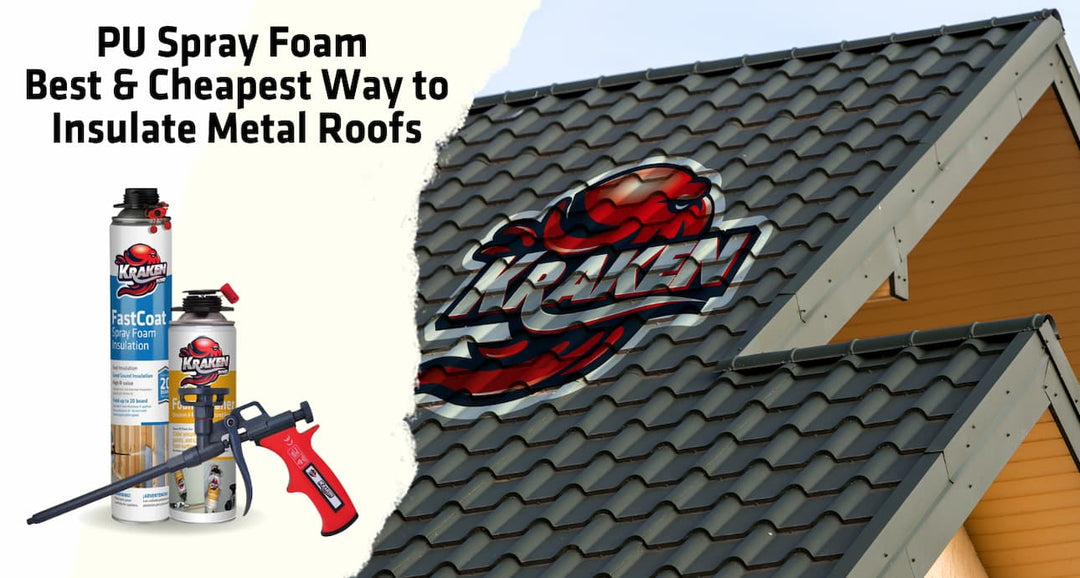

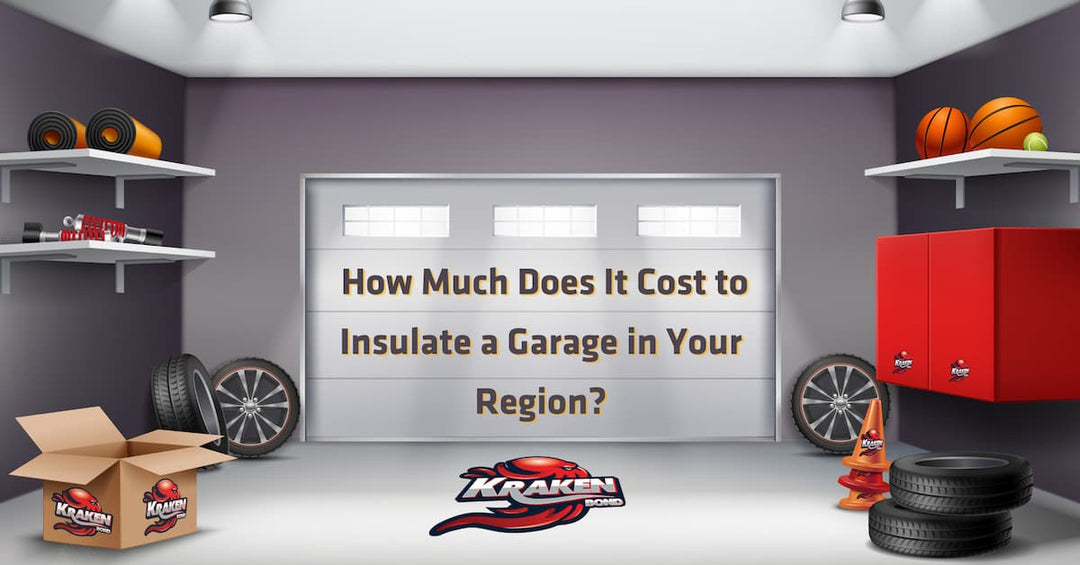


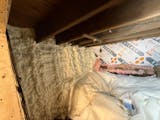

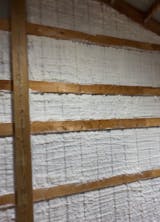
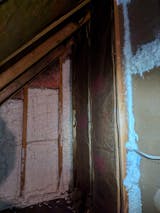
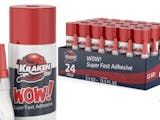





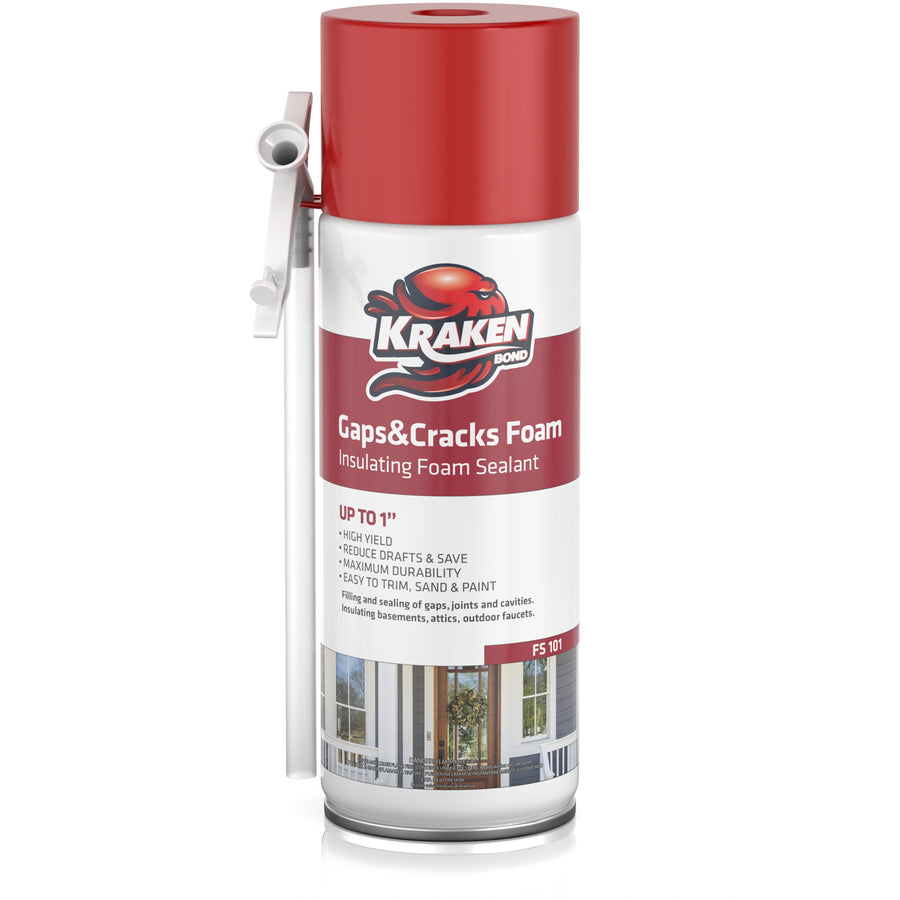
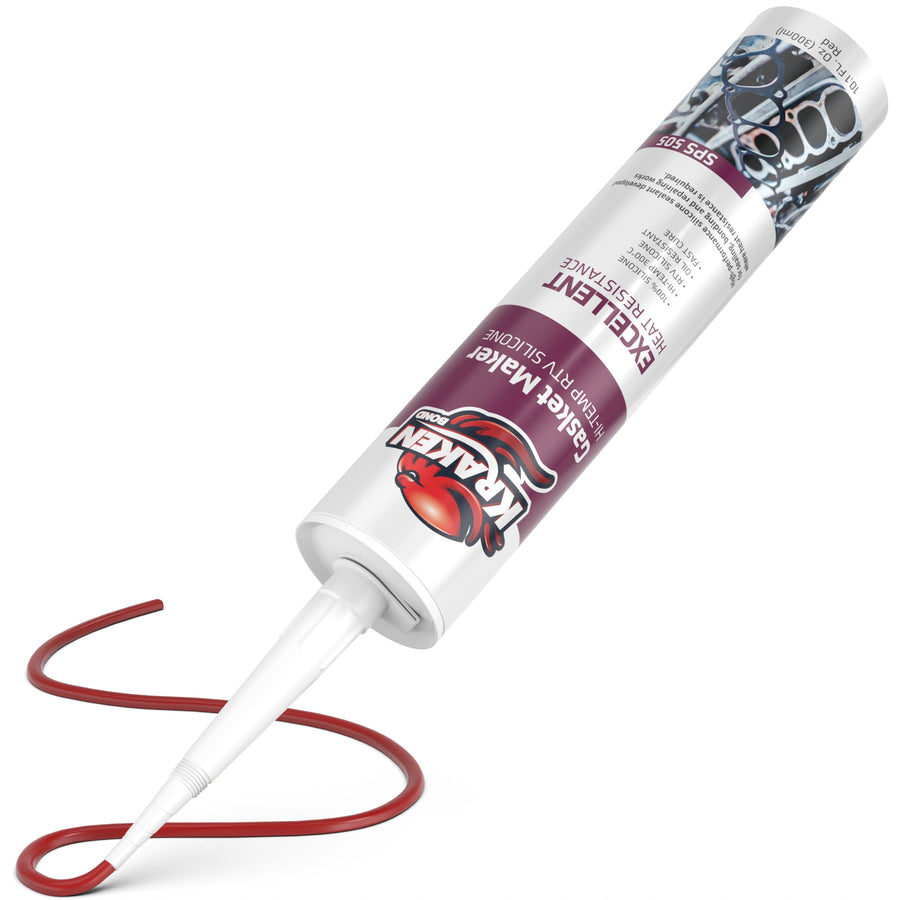
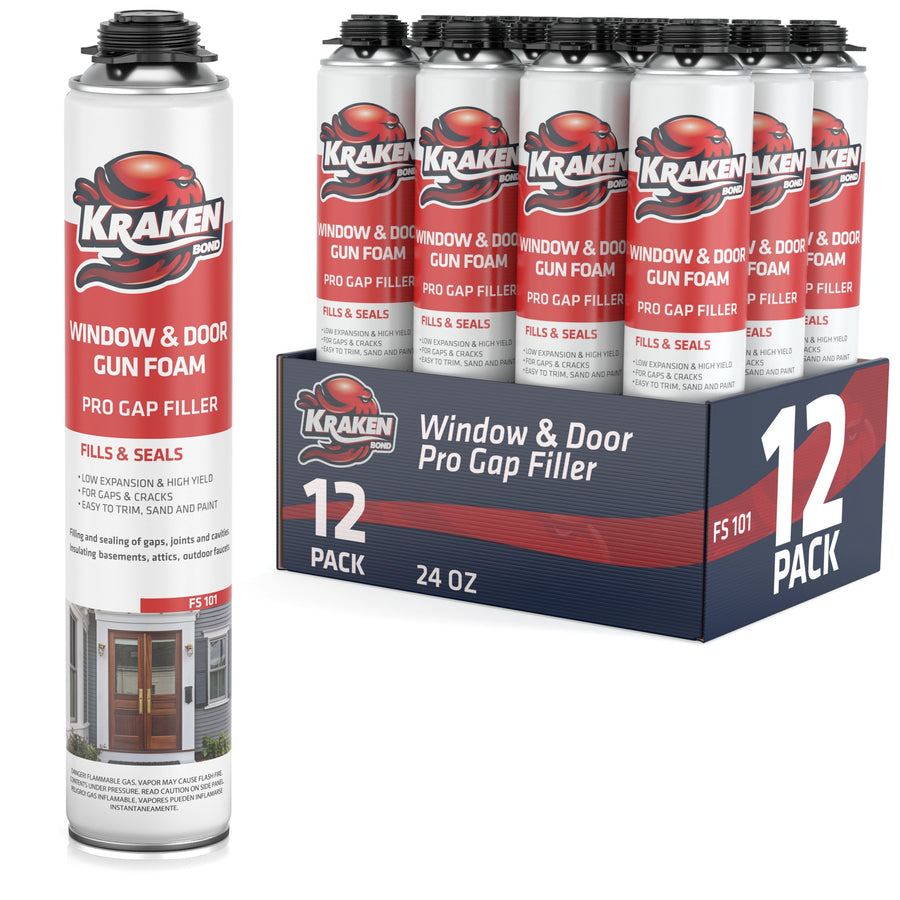
Leave a comment